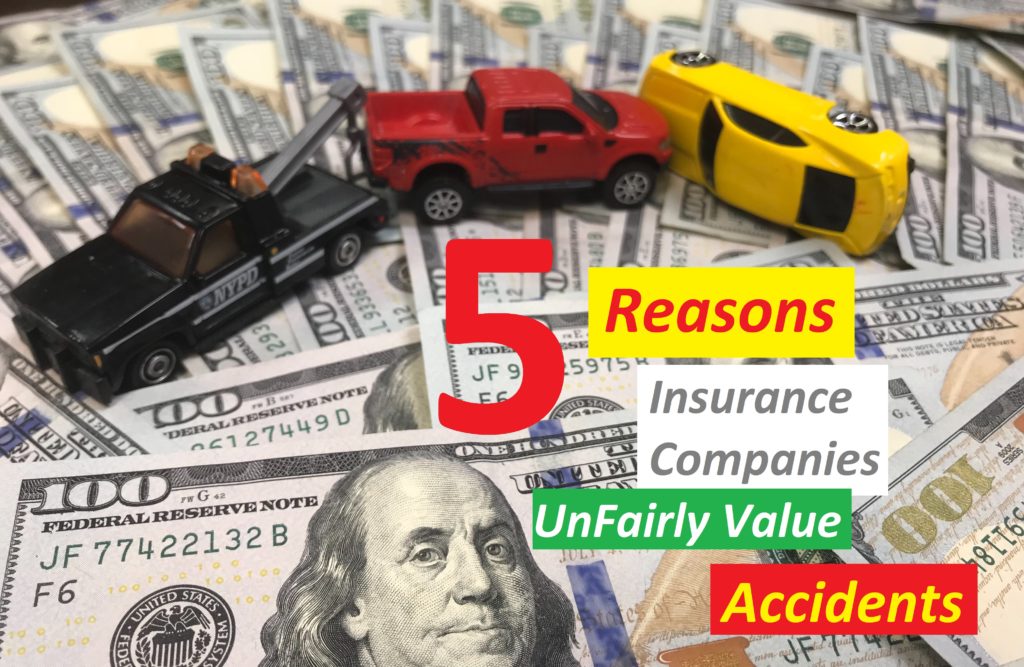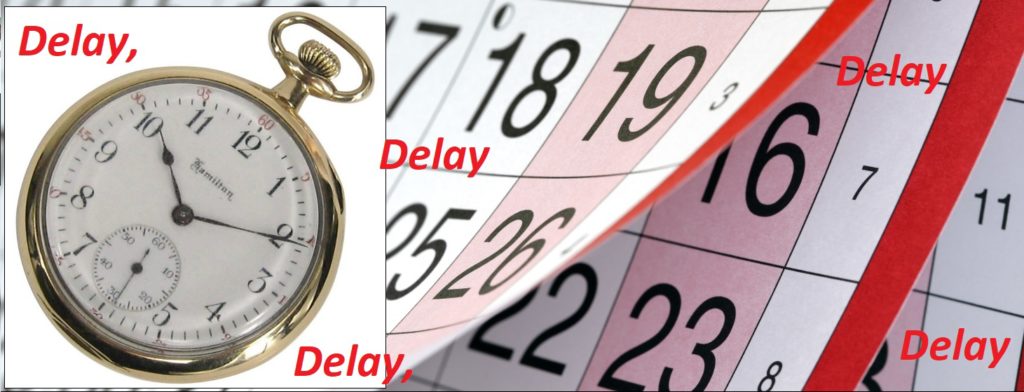 FIVE REASONS NOT TO HAVE AN ATTORNEY FOR AN AUTO ACCIDENT
FIVE REASONS NOT TO HAVE AN ATTORNEY FOR AN AUTO ACCIDENT
Opinions vary as much as people vary when it comes to whether to hire a lawyer after you have an auto accident. This article explains five reasons why one may choose not to hire a lawyer for their auto accident case.
No. # 1 – PROPERTY DAMAGE ONLY
 Most auto accidents do not involve personal injury, thankfully. Also, most insurance companies have separate divisions called “property casualty” divisions. Property Casualty Divisions tend to be more reasonable in giving money to settle property damage claims. Even in injury cases, one will typically have two different insurance adjusters. One adjuster will handle the property side. Another adjuster will handle the injury side.
Most auto accidents do not involve personal injury, thankfully. Also, most insurance companies have separate divisions called “property casualty” divisions. Property Casualty Divisions tend to be more reasonable in giving money to settle property damage claims. Even in injury cases, one will typically have two different insurance adjusters. One adjuster will handle the property side. Another adjuster will handle the injury side.
A property damage only case is more likely to garner a reasonable offer for property reimbursement. Thus, you may not need a lawyer if your auto collision caused only property damage and the insurer offers reasonable compensation.
How to Learn the Reasonable Value for your Vehicle
It is common to have a discrepancy over the value of a vehicle if it has been “totaled.” Know that insurance companies are sophisticated in their car value evaluations. Do not expect to get full value for your vehicle. A reasonable value (not full) will be a success. This is because insurers know it will cost you time, effort, stress, and money to fight them over vehicle value. You may very well find yourself in the unpleasant position of taking less than your car is worth because it will cost you more money to get a reasonable insurance offer.
 Remember that Kelly Blue Book valuations (www.kbb.com) may overstate the value of a car. The insurance adjuster and industry “gold standard” is the “black book” of the NADA, also known as the National Automobile Dealers’ Association. This “black book” is rather expensive. However, its website www.nada.com provides free valuations.
Remember that Kelly Blue Book valuations (www.kbb.com) may overstate the value of a car. The insurance adjuster and industry “gold standard” is the “black book” of the NADA, also known as the National Automobile Dealers’ Association. This “black book” is rather expensive. However, its website www.nada.com provides free valuations.
Is the insurance company paying less for property damage than the full amount of insurance available? Is there also a serious injury? In these cases, not hiring attorney could lose you money. A clever attorney may even be able to get the full amount of insurance on the property value case by combining the claims for both injury and property damage. This is one method to maximize the reasonable value of your case.
No. # 2 – WHAT IS THE INJURY?
Medical Bill Amounts
Many cases do not need a lawyer if injuries are small or pre-existing. First, look to the medical bill amounts. Medical bill amounts totaling less than $5,000 often do not justify the hiring of a contingency fee or hourly lawyer. This is because the potential settlement amount is so small that one may spend more money paying the attorney than the handling it on one’s own. Almost always, a dedicated injury attorney will win you a higher amount in settlement. However, a case with small medical bills may not justify that attorney’s fee. Remember, it’s about the total amount in the end that you are getting. It’s not about the total amount of your settlement.
Injury Type – No Lawyer
 Exactly what is the injury? Sore backs, strained necks, and headaches are the most common injuries reported after collisions. These typically resolve after eight weeks of activity. Physical therapy is common. Anti-inflammatory pain medication is common. These common injuries tend not to produce high case values because juries do not award large judgments at trial.
Exactly what is the injury? Sore backs, strained necks, and headaches are the most common injuries reported after collisions. These typically resolve after eight weeks of activity. Physical therapy is common. Anti-inflammatory pain medication is common. These common injuries tend not to produce high case values because juries do not award large judgments at trial.
This type of injury, alone, (even with medical expenses exceeding $5,000 to $10,000), may not require the services of a lawyer. This is again an issue of economics. If your case value is low, paying an attorney 33 to 50 percent of the case value may not be worth the investment.
Injury Type – Yes Lawyer
Other types of injury necessitate attorney involvement. For example, amputations and broken bones often do not cost much and medical bills are low. However, they can be valuable cases. Such cases also are so complex as to need the professional services of a lawyer. In short, typical injuries that resolve on their own often do not require an attorney. Permanent injury or disability typically does point to hiring an attorney.
No. #3 – HAS THE INSURER MADE A REASONABLE OFFER?
It is less common nowadays. However, there are still some reasonable insurance companies. There are still reasonable insurance adjusters. You, as the victim, need to make a judgment based upon the offer, if any, from the insurance adjuster. If the offer is reasonable and makes you happy; take the money and be happy. There is no need to hire a lawyer.
You can call an injury accident lawyer and ask his opinion as to the value. It may surprise you that they will give an honest answer. Remember, every attorney wants happy clients. No one wants to waste money and be of no service. If the offer pays for your property damage and medical bills, you may wish to take it.
No. # 4 – WHERE DID THE ACCIDENT OCCUR?
 People in different parts of the country think differently. So too, the laws in different parts of the country reflect those peoples’ attitudes and are different. Some places are conservative. Some places are liberal. Injury accident values vary considerably based upon location. If one has an accident in a highly conservative area where injury values are low, they may not want to hire a lawyer but keep what little money is offered for themselves. Other areas tend to provide more reasonable results. Full value will then require the expertise of an attorney and justifies the expense.
People in different parts of the country think differently. So too, the laws in different parts of the country reflect those peoples’ attitudes and are different. Some places are conservative. Some places are liberal. Injury accident values vary considerably based upon location. If one has an accident in a highly conservative area where injury values are low, they may not want to hire a lawyer but keep what little money is offered for themselves. Other areas tend to provide more reasonable results. Full value will then require the expertise of an attorney and justifies the expense.
How can you determine if your accident location is good? My best advice is to call an injury accident lawyer from your particular jurisdiction and ask. It won’t take more than an hour of your time to call three lawyers and ask their opinions as to the value. You will then have an opinion population and can make a judgment on your own.
NO. #5 – HOW MUCH TIME AND STRESS DO YOU WANT TO EXPEND MANAGING YOUR CLAIM?
 We all spend our lives confronting and solving new problems. Anything you are an expert at means that at some point you were a rookie and knew nothing … but learned. Do you enjoy tackling new problems? Do you want to learn a complex new area? Are you willing to take the risk? How busy is your life presently?
We all spend our lives confronting and solving new problems. Anything you are an expert at means that at some point you were a rookie and knew nothing … but learned. Do you enjoy tackling new problems? Do you want to learn a complex new area? Are you willing to take the risk? How busy is your life presently?
Some people will enjoy the challenge. Other people will want to delegate the work because their priorities are elsewhere. This involves your decision whether to hire a lawyer. If you want to take the risk and get the satisfaction of handling the claim yourself, you should do so. If you would rather delegate to an expert for the cost of the expert, do that. One way or the other, you will have to live with your decision. The decision of when not to hire an accident lawyer will be your opinion and your opinion is the only opinion that really matters.
Author:
 Matt Hamilton of Hamilton & Associates, Lawyers
Matt Hamilton of Hamilton & Associates, Lawyers
- Juris Doctor
- Trial Attorney


 It is Saturday night. Robert owns a local coffee shop. This coffee shop is a building and a parking lot next to a crowded street. Young people like to congregate and socialize in its parking lot Saturday nights.
It is Saturday night. Robert owns a local coffee shop. This coffee shop is a building and a parking lot next to a crowded street. Young people like to congregate and socialize in its parking lot Saturday nights. A business owner can be liable to a victim on his property even when the perpetrator had nothing to do with the business owner.
A business owner can be liable to a victim on his property even when the perpetrator had nothing to do with the business owner.
 Author:
Author: How to Overcome Uncertain Treating Physician Testimony in Prosthetic Amputation Lawsuits
How to Overcome Uncertain Treating Physician Testimony in Prosthetic Amputation Lawsuits With physicians, this is the “reasonable medical certainty” standard. For example, in Missouri, the Supreme Court ordered in cases like
With physicians, this is the “reasonable medical certainty” standard. For example, in Missouri, the Supreme Court ordered in cases like  A second problem is the uncertainty of future medical treatment or repercussions. Doctors helping amputation victims cannot see the future. Future treatment or negative outcomes may be dependent upon events that do not occur. This second problem is physicians saying this may not occur unless one or two or three other events happen. Therefore, they give the opinion they cannot say to a reasonable degree of certainty because they do not know the certainty of these future events. This challenge can also be overcome.
A second problem is the uncertainty of future medical treatment or repercussions. Doctors helping amputation victims cannot see the future. Future treatment or negative outcomes may be dependent upon events that do not occur. This second problem is physicians saying this may not occur unless one or two or three other events happen. Therefore, they give the opinion they cannot say to a reasonable degree of certainty because they do not know the certainty of these future events. This challenge can also be overcome. The Missouri Supreme Court in the case of
The Missouri Supreme Court in the case of  Author:
Author: FIVE REASONS WHY INSURANCE COMPANIES DO NOT FAIRLY PAY ACCIDENT CLAIMS
FIVE REASONS WHY INSURANCE COMPANIES DO NOT FAIRLY PAY ACCIDENT CLAIMS


